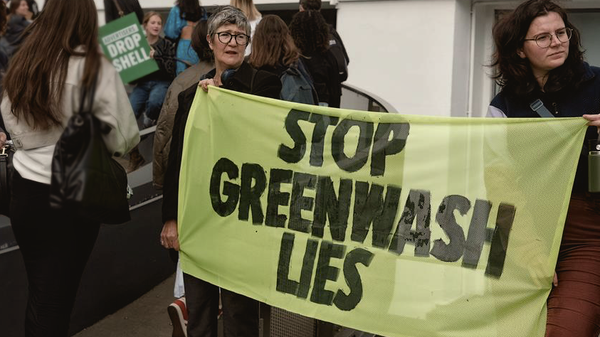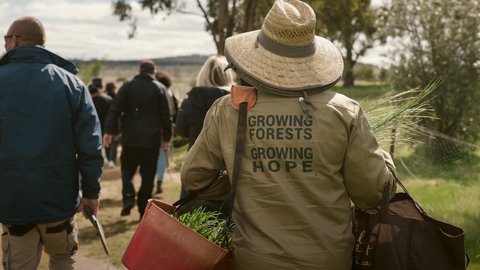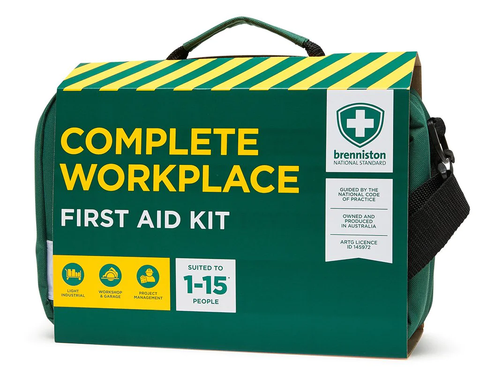How to choose truly sustainable products that are good for the environment
Share

Australians are becoming increasingly conscious of their environmental impact and seeking out products that are sustainable and environmentally friendly.
But as demand for green products grows, some companies have resorted to a deceptive practice known as ‘greenwashing’ – making misleading or false claims about the environmental benefits of their products or services.
Greenwashing is a form of marketing that capitalises on people’s desire to be eco-conscious. Companies may use vague or ambiguous language, selective disclosure or outright fabrications to portray their products as more environmentally friendly than they actually are.
This can lead people to make purchasing decisions based on false or exaggerated information, ultimately undermining their efforts to make sustainable choices.
Both the Australian Competition and Consumer Commission (ACCC) and Australian Securities and Investments Commission (ASIC) have investigated companies making unsubstantiated or false environmental claims.
1. Identifying greenwashing
To avoid falling victim to greenwashing, it’s essential to be aware of common tactics. Here are some red flags to watch out for:
- Vague or meaningless claims: Be wary of products that make broad claims like ‘eco-friendly,’ ‘natural’ or ‘green’ without providing specific details or third-party certifications to back up these assertions.
- Lack of transparency: Companies engaging in greenwashing often fail to provide clear and complete information about their products’ environmental impact, manufacturing processes or supply chain practices.
- Irrelevant or misleading imagery: Greenwashing frequently uses nature imagery or green colour schemes to create an impression of eco-consciousness, even when the product itself has minimal or no environmental benefits.
- Misleading labels or certifications: Beware of companies that create their own self-awarded eco-labels or use misleading certifications that lack credibility or third-party verification.
2. Avoiding greenwashing
To make informed and genuinely sustainable choices, follow these tips when evaluating products and their environmental claims:
- Look for credible certifications: Third-party certifications should be credible and backed by independent organisations to ensure the legitimacy of environmental claims. Certifications should be based on standards, independently certified, regularly audited, verifiable, and transparent in their processes.
- Check company practices: Research a company’s overall sustainability efforts including their environmental policies, supply chain practices, and commitment to reducing their carbon footprint.
- Be wary of buzzwords: Don’t be swayed by terms like ‘natural,’ ‘eco-friendly’ or ‘green’ unless they’re accompanied by specific, verifiable information.
- Support transparency and accountability: Encourage companies to adopt clear and consistent eco-labelling practices, and hold them accountable for their environmental claims through consumer advocacy and regulatory oversight.
- Ask questions: Don’t hesitate to reach out to companies directly and ask for clarification or additional information about their environmental claims and practices.

3. Supporting organisations to combat greenwashing
Supporting organisations in the fight against greenwashing helps promote genuine sustainability practices, protect consumers from misleading information and advance the transition towards a more environmentally friendly future.
At Brenniston we’ve partnered with Greenfleet to help make a more positive impact on the environment.
Greenfleet is a leading Australian not-for-profit organisation dedicated to protecting the climate by planting native biodiverse forests to offset carbon emissions and help fight the impacts of climate change.
Since 1997, Greenfleet has planted more than 10.8 million trees across more than 550 forests in Australia and New Zealand.
Greenfleet forests absorb carbon emissions, improve soil and water quality and restore habitat for native wildlife, including many endangered species.
Greenfleet’s carbon offsetting and reforestation projects are independently audited and verified by third parties. This level of transparency and verification is lacking in many companies that engage in greenwashing through vague, unsubstantiated environmental claims.
Greenfleet’s mission is centred on genuine far-reaching environmental sustainability through permanent forest conservation and habitat restoration. This long-term approach differs from greenwashing tactics which typically prioritise short-term marketing gains over genuine, lasting environmental benefits.

3. Making sustainable choices: Brenniston National Standard First Aid Kits
At Brenniston, we’re leading the industry in innovative workplace first aid kits and premium supplies.
We take environmental action seriously with a range of programs including offsetting carbon emissions through Greenfleet’s native reforestation program.
As well as offsetting our fleet of 12 work vehicles we also donate $1 to Greenfleet for every Brenniston National Standard Workplace First Aid Kit purchased on our website or via our retail partner, Officeworks.
This means every time you buy a Brenniston National Standard Workplace First Aid Kit you’re helping plant carbon-absorbing native forests around Australia.
Since July 2021, our customers have helped offset 1,877 tonnes of carbon, which is equivalent to:
- Taking 391 average cars off the road for a year, or
- Offsetting 2,816 return flights between Melbourne and Sydney, or
- Covering the carbon emissions of 77 people living in Australia for a whole year.

4. Benefiting the environment
Greenfleet provides a practical and tangible solution for companies and organisations to offset their carbon emissions while contributing to the restoration of native ecosystems and promoting environmental sustainability in Australia. Here are some of the key benefits:
Climate change mitigation: By planting trees and creating carbon sinks, Greenfleet helps mitigate the effects of climate change by removing greenhouse gases from the atmosphere.
Ecosystem restoration: The biodiverse forests planted by Greenfleet help restore degraded landscapes, provide habitat for wildlife, and enhance biodiversity.
Environmental education: Greenfleet promotes environmental awareness and education, encouraging individuals and organisations to take action towards a more sustainable future.
Community engagement: The organisation involves local communities in its tree-planting and land conservation projects, fostering a sense of ownership and environmental stewardship.
Corporate social responsibility: Businesses that partner with Greenfleet can demonstrate their commitment to environmental sustainability and corporate social responsibility, enhancing their reputation and appealing to eco-conscious consumers.
Tax benefits: In some cases, individuals and businesses may be eligible for tax deductions or credits for their contributions to Greenfleet’s carbon offsetting programs.
Conclusion
By staying informed, scrutinising environmental claims and making conscious choices, you can play a vital role in driving genuine sustainability and holding companies accountable for their environmental impact.
Partnering with credible organisations like Greenfleet provides a transparent and effective way to offset carbon emissions while actively supporting reforestation and ecosystem restoration.
At Brenniston, we’re committed to doing our part by offsetting our fleet’s emissions, donating proceeds from product sales, and educating our customers about authentic eco-friendly practices.
Together, we can create a future where environmentally responsible actions are the norm, greenwashing is obsolete and businesses prioritise long-term sustainability over superficial marketing ploys.
By making mindful choices and supporting initiatives that protect our planet, we can leave a legacy of genuine environmental progress for generations to come.
References
ACCC - Greenwashing by businesses in Australia
ASIC - What is greenwashing and what are its potential threats?